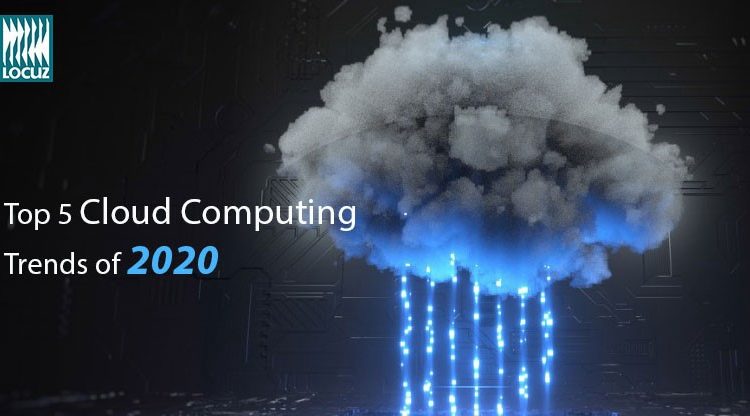
In the field of innovation and business, cloud computing has been one of the burning points all throughout 2019. Most of the technology experts believe that the cloud will be a superpower for many organizations to solve significant business challenges. It is also predicted that from 2020, over 60% of IT infrastructure spends will be on the cloud. Throughout 2019, we have observed that organizations have majorly opted for serverless architecture, resulting in exponential growth in cloud adoption.
The growing endorsements of the cloud make it evident that the future of cloud is something beyond merely a desirable tool to now a business-critical necessity. Innovations in AI, machine learning and IoT is allowing organizations to scale up and manage their processes more accurately and with speed.
Since the cloud is here to dominate all technology trends seen in the recent past, it’s important to understand also the crucial trends that are emerging in the cloud in 2020:
1. Hybrid Cloud
Hybrid multi-cloud strategies will gain higher adoption from 2020 onwards. Most of the organizations are looking for vendors who can address the complexity of using multiple on-premises, private, and public clouds. A recent report published by MarketsandMarkets, reveals that the adoption of hybrid cloud will grow up to $97.64 billion by 2023.
What does a hybrid cloud offer?
- Flexibility, users can easily shift their workloads between private and public clouds.
- Enhanced Performance
- Consistent server reliability
- Enhanced Security
- SaaS capabilities
2. IoT Platform
Internet of Things (IoT) is one of the platform emerging technologies which will be a major cloud computing trend from 2020. IoT is a cloud-enabling platform that allows data transfer between computing devices over the internet without any manual interventions. As per “Gartner Studies by 2021 the number of networked machines and systems will raise up to 25 billion”. The Rise of IoT trend directly impact the way data centres are being built, Organization will now think of setting up smaller data centres.
“According to Gartner, by 2025, 75 per cent of enterprise data will be created and stored at the edge”.
3. Rise of Kubernetes
Containers are already popular among organizations with their mantra to build it once and run it anywhere. In line with growing hybrid cloud demand, containers will also observe such growth. As containers streamline the concerns associated with hybrid clouds, such as operational, management and deployment concerns.
Kubernetes a product of Google is an open-source platform for managing containerized workloads. It can handle both declarative and automation configurations. In the coming future tools like Kubernetes gain more prominence for container orchestrations.
4. Artificial Intelligence
Artificial Intelligence is creating quite a buzz in the technology industry, and it’s now a cloud computing trend to watch out for. From 2020 AI will be an integral part of the organization’s data centre. AI will be actively used for predefining patterns in hardware failures, either in-network or server. It is also used to solve network problems even before they occur. The most interesting part of AI is it can solve the skill shortage issue, as it plays a vital role in automating a lot of tasks that a network professional does. The core competencies of AI like intelligent robotics, machine learning and system recognition are offering organizations to manage and scale up their big data in a most effective way.
5. Cloud Security
Cloud security is a priority of the industry rather a trend. Till 2019 most of the organizations rely on the security service which their Cloud Service Providers offer. But now the scene has been changed, in addition to the security what the CSP’s are providing, organizations are now very keen on building their own strong security foundation for their workloads in the cloud. An integrated security approach with a 24/7 cloud security monitoring is all that organization need today to protect their data and users in real-time. Cloud security providers that can comply with GDPR (General Data Privacy and Management) will be in high demand over the coming years.
